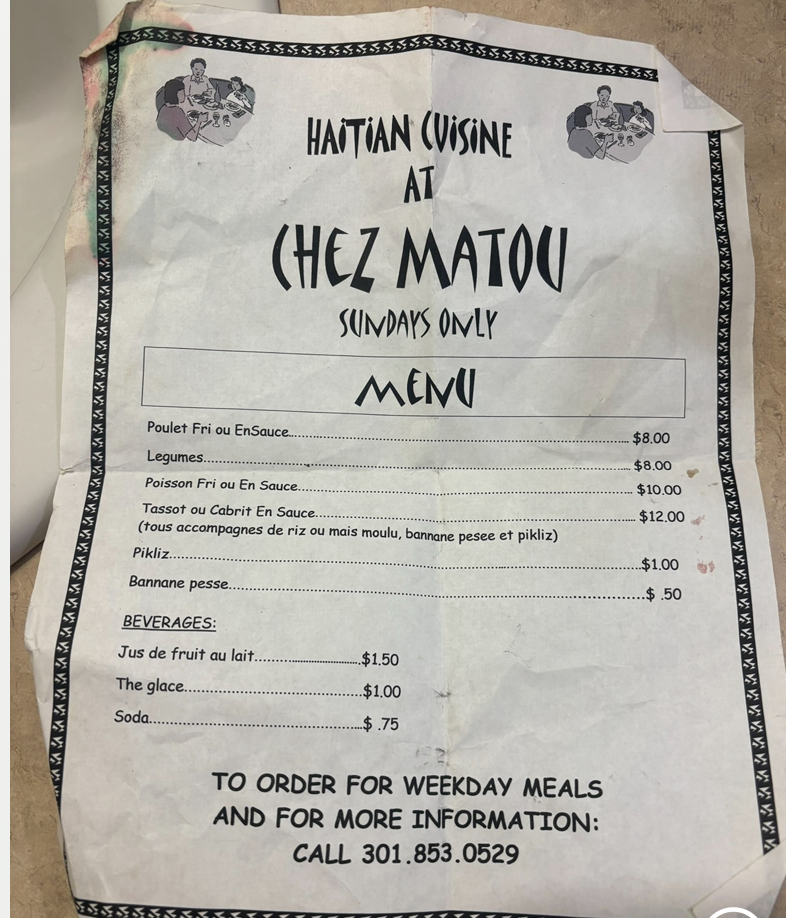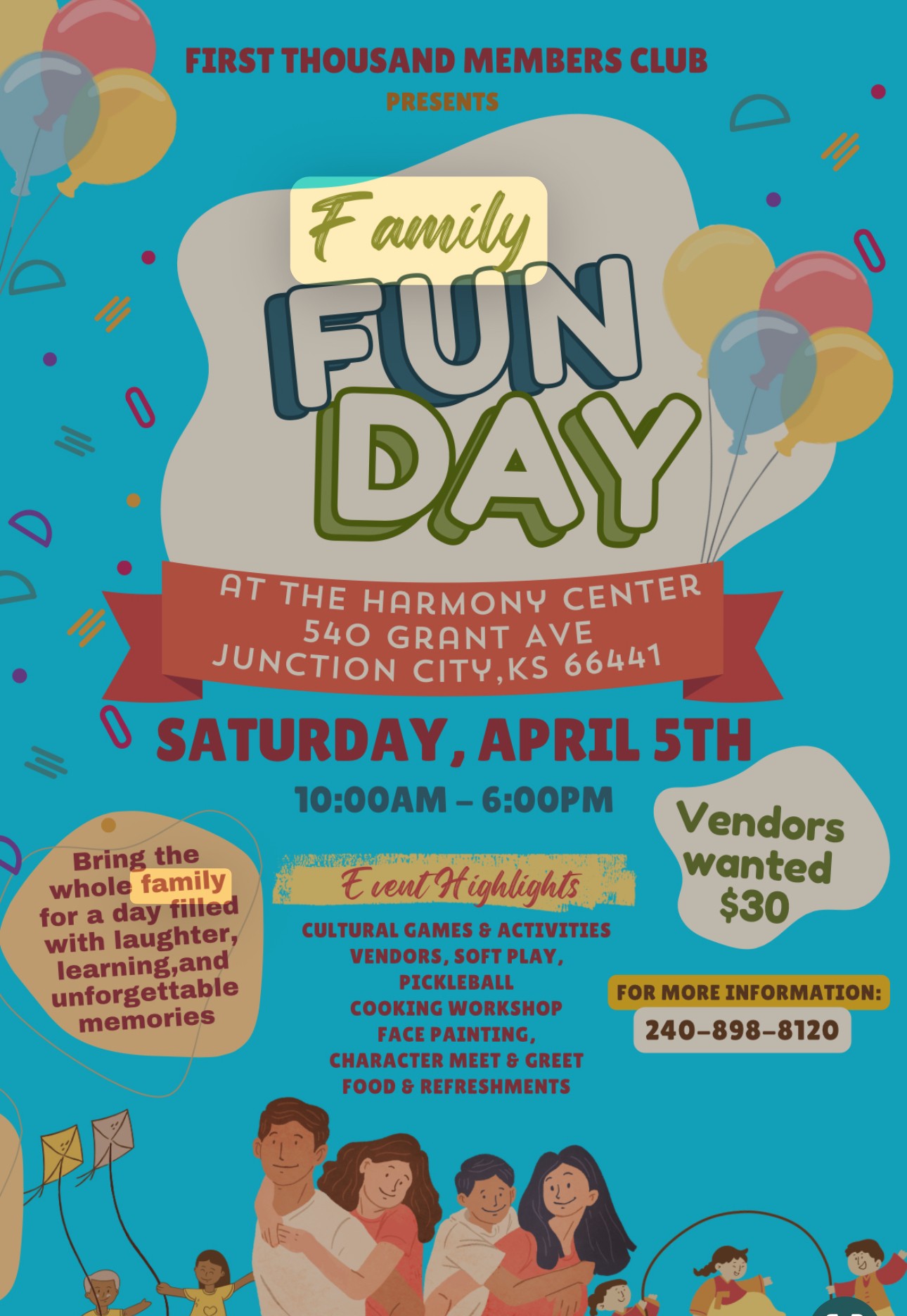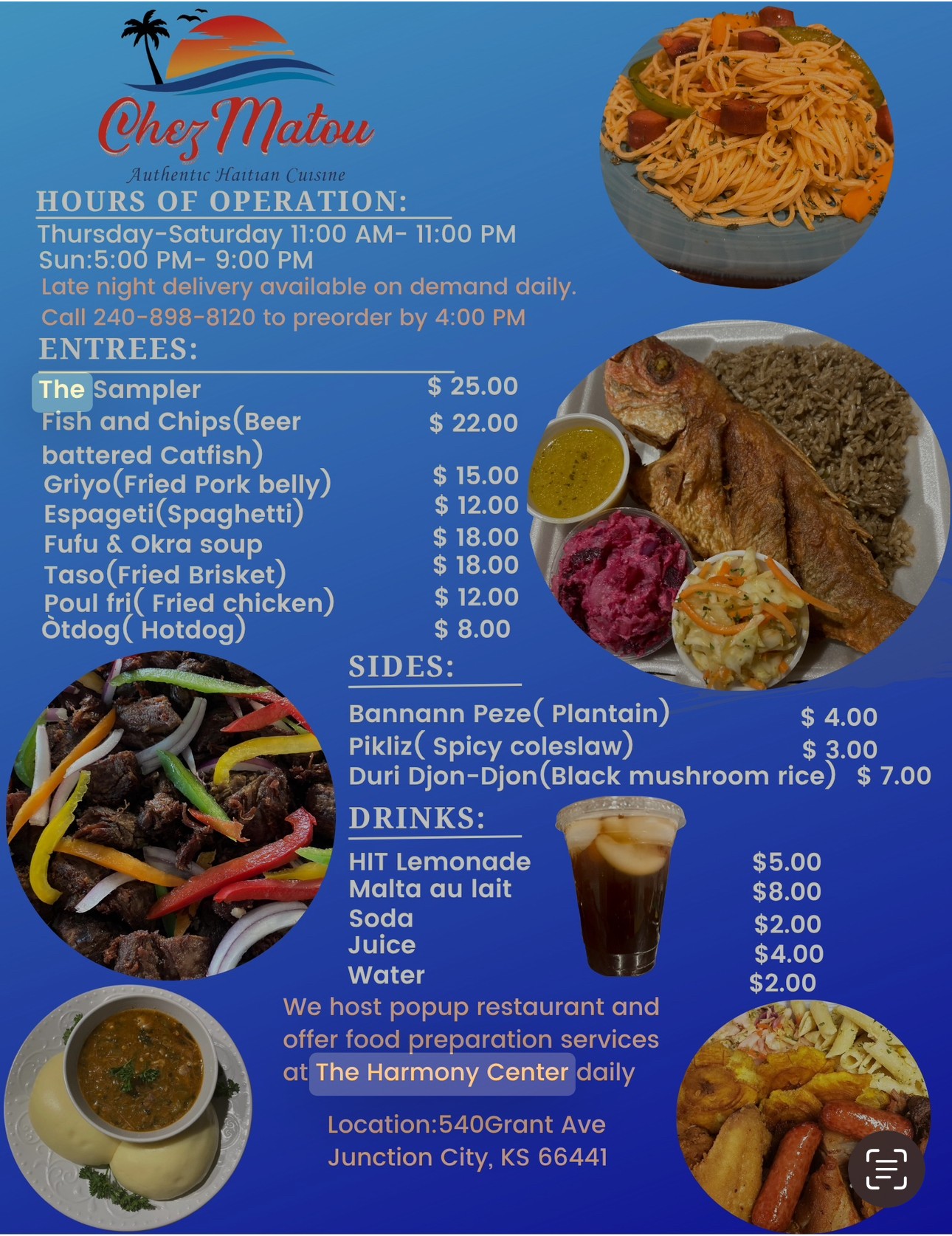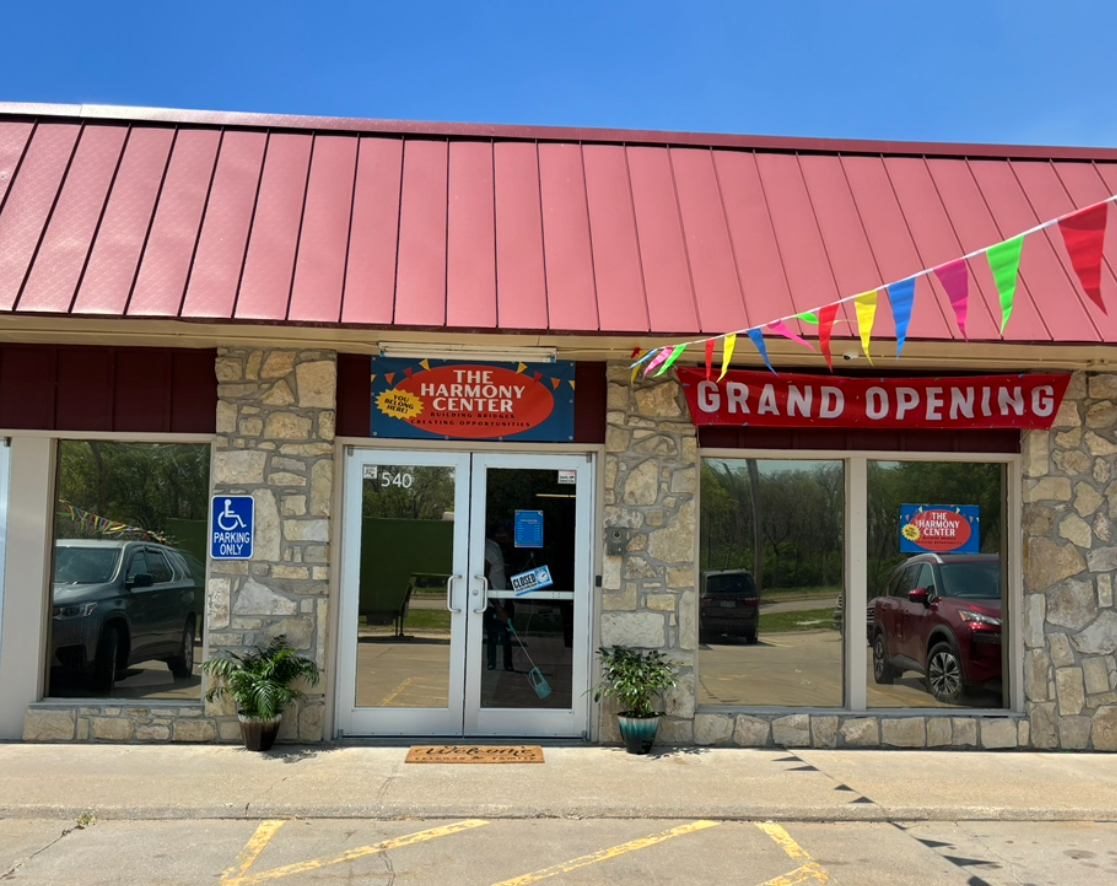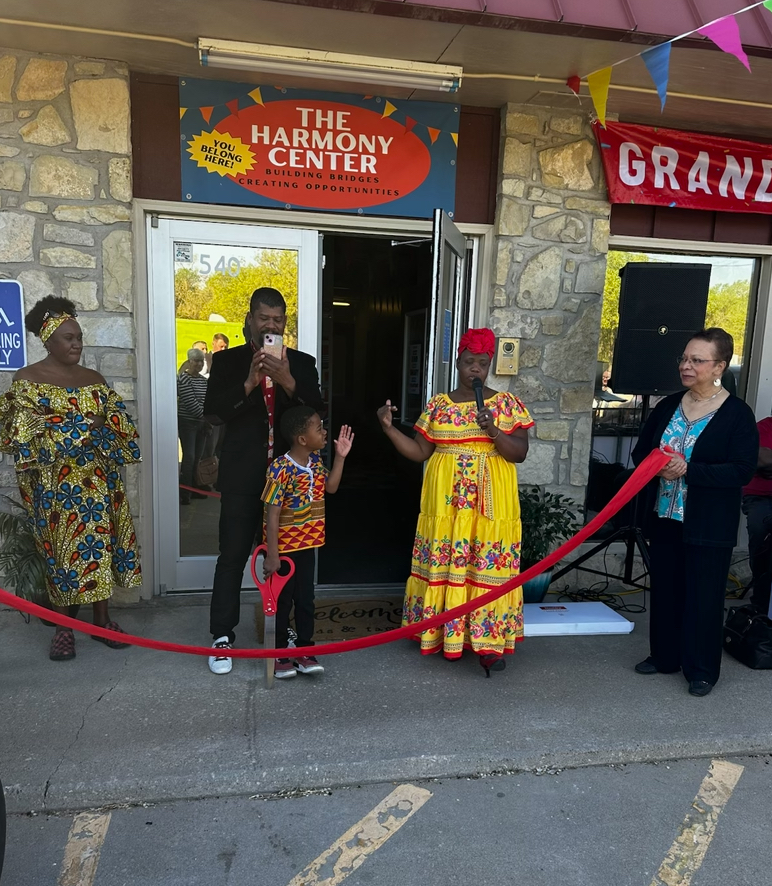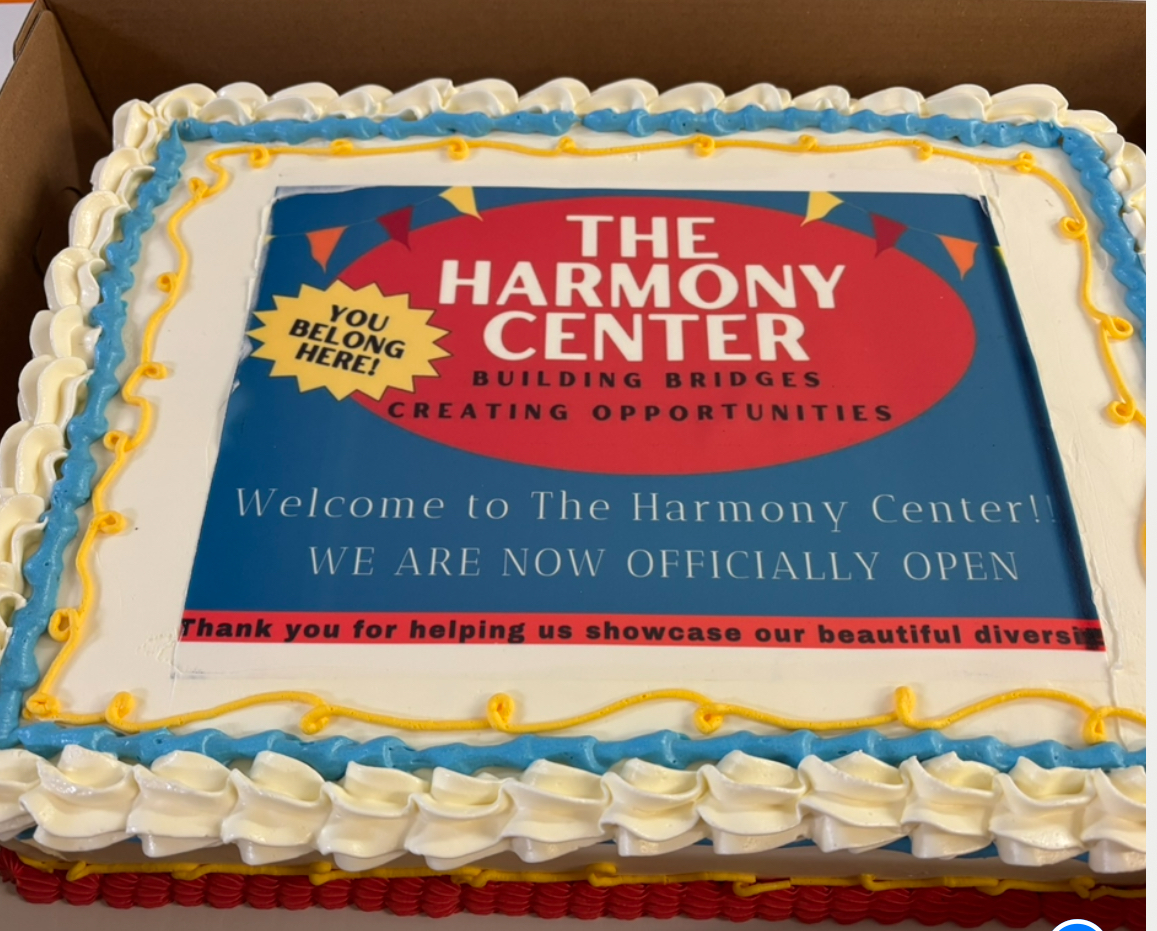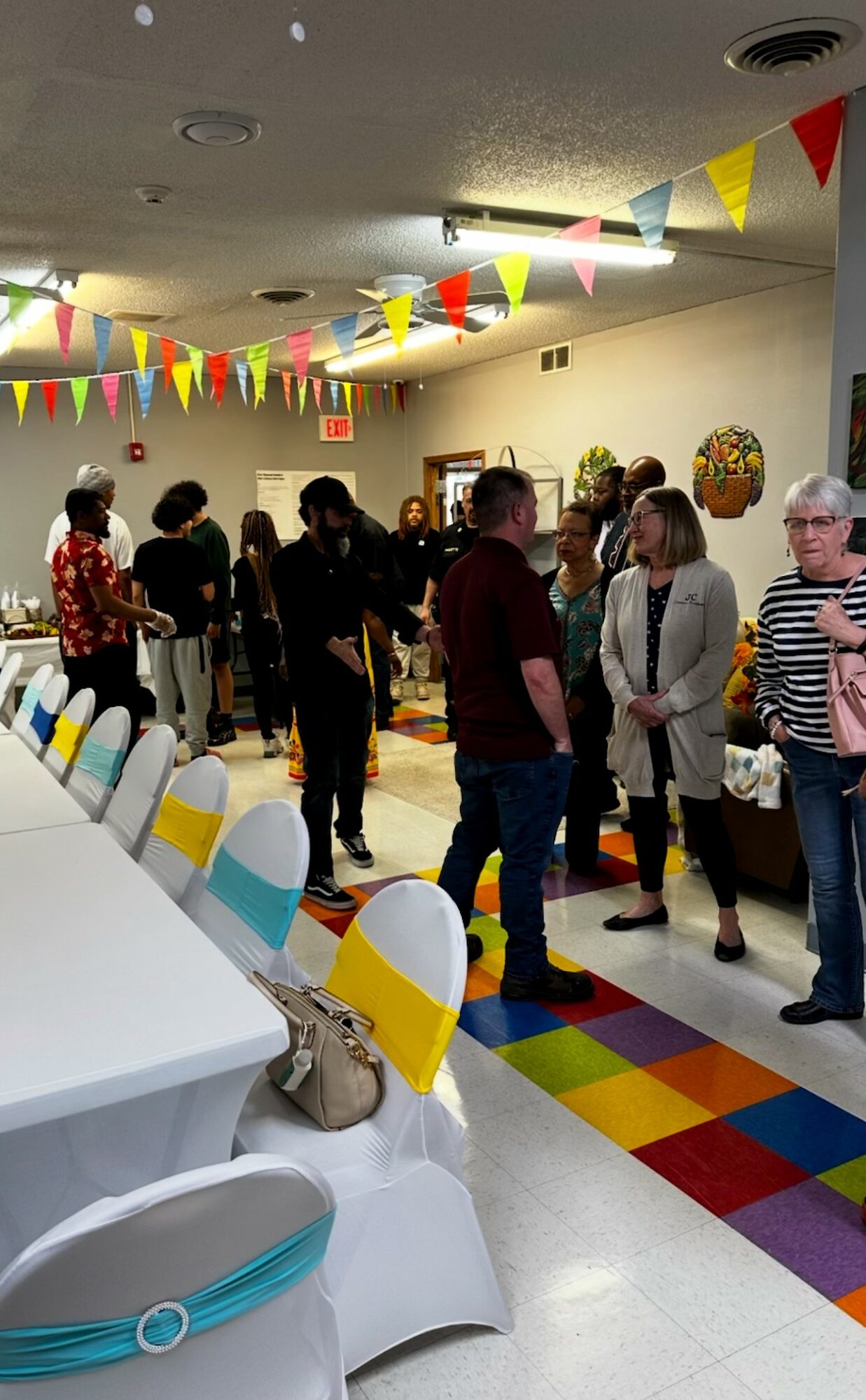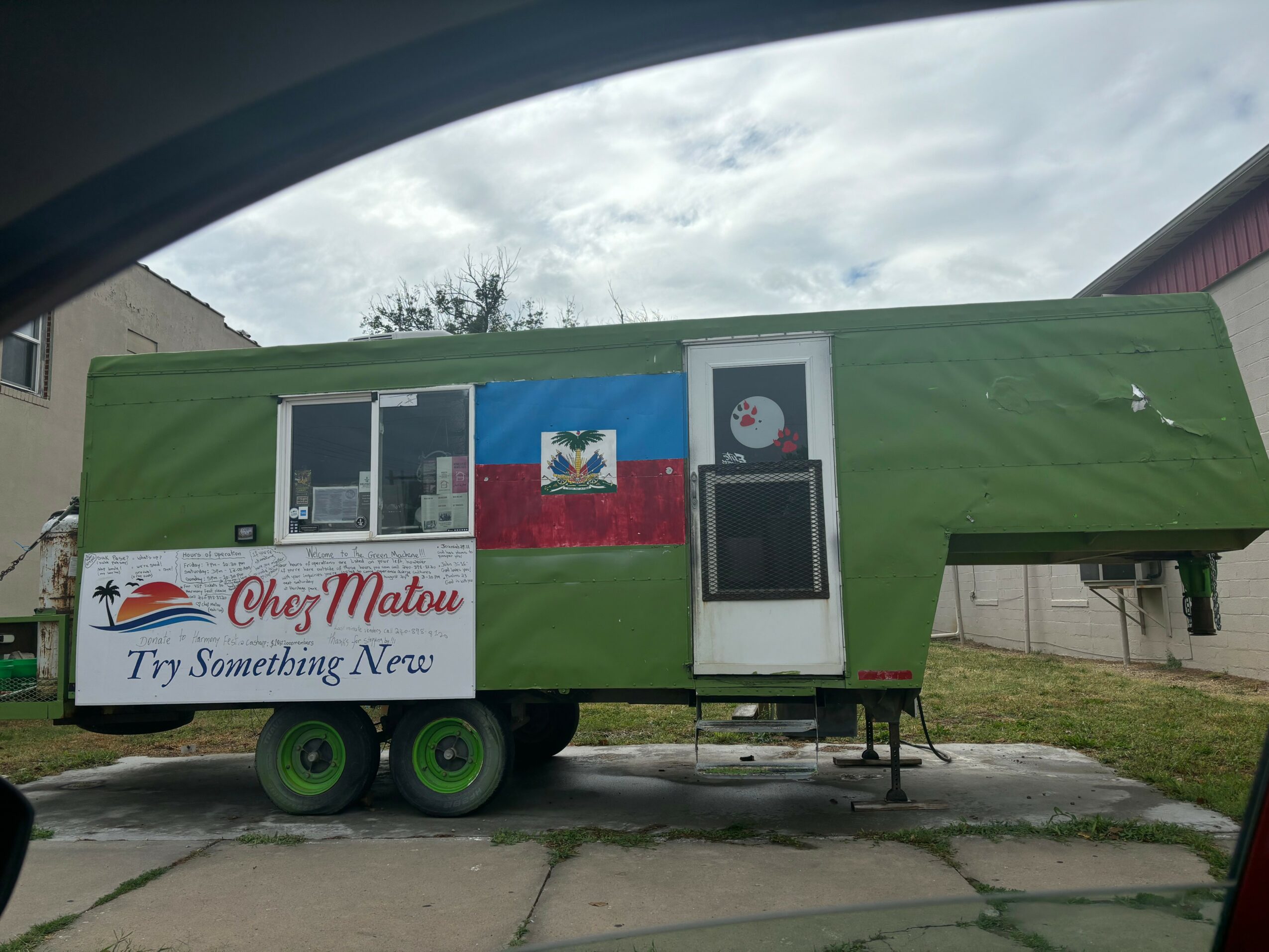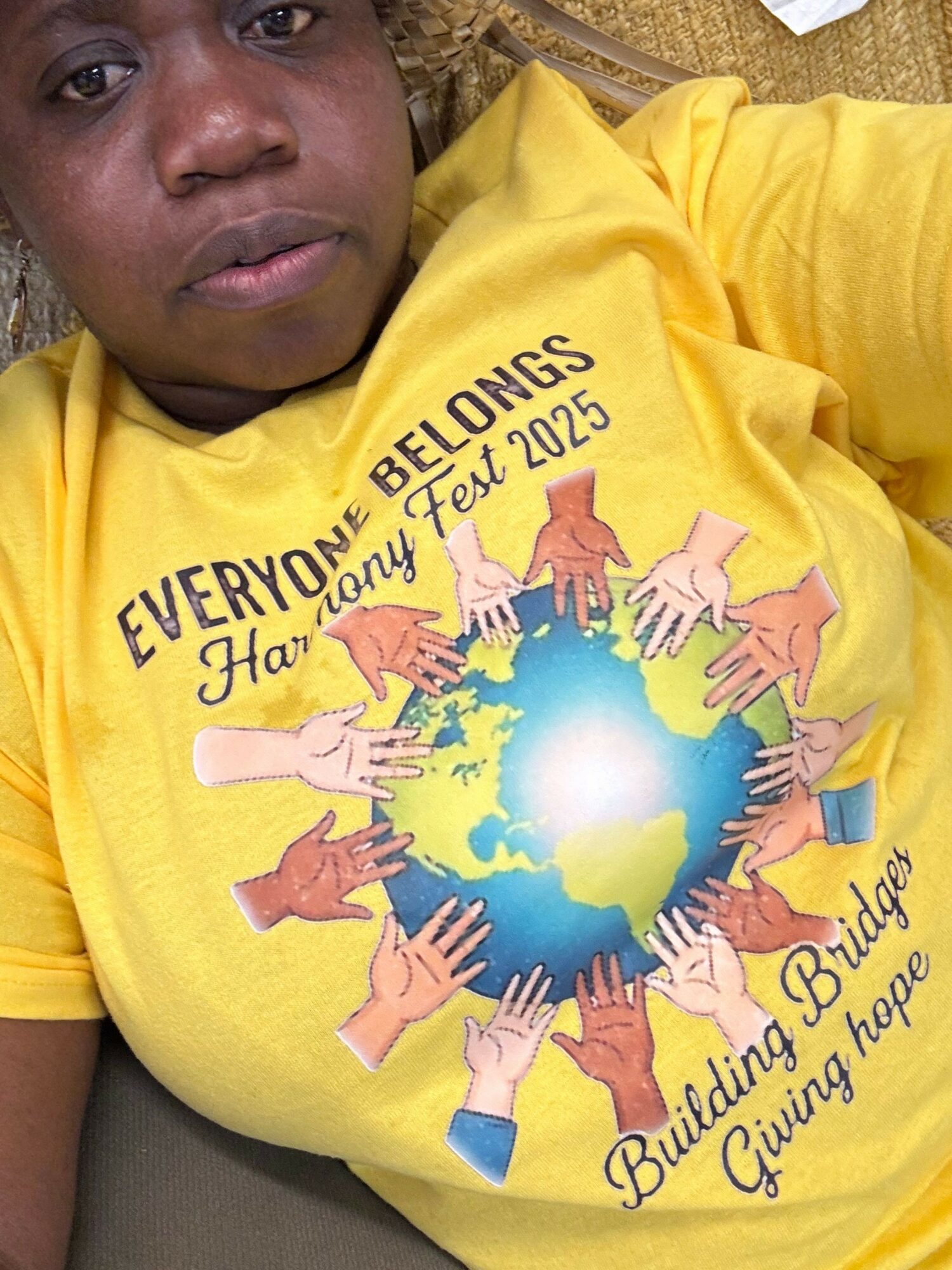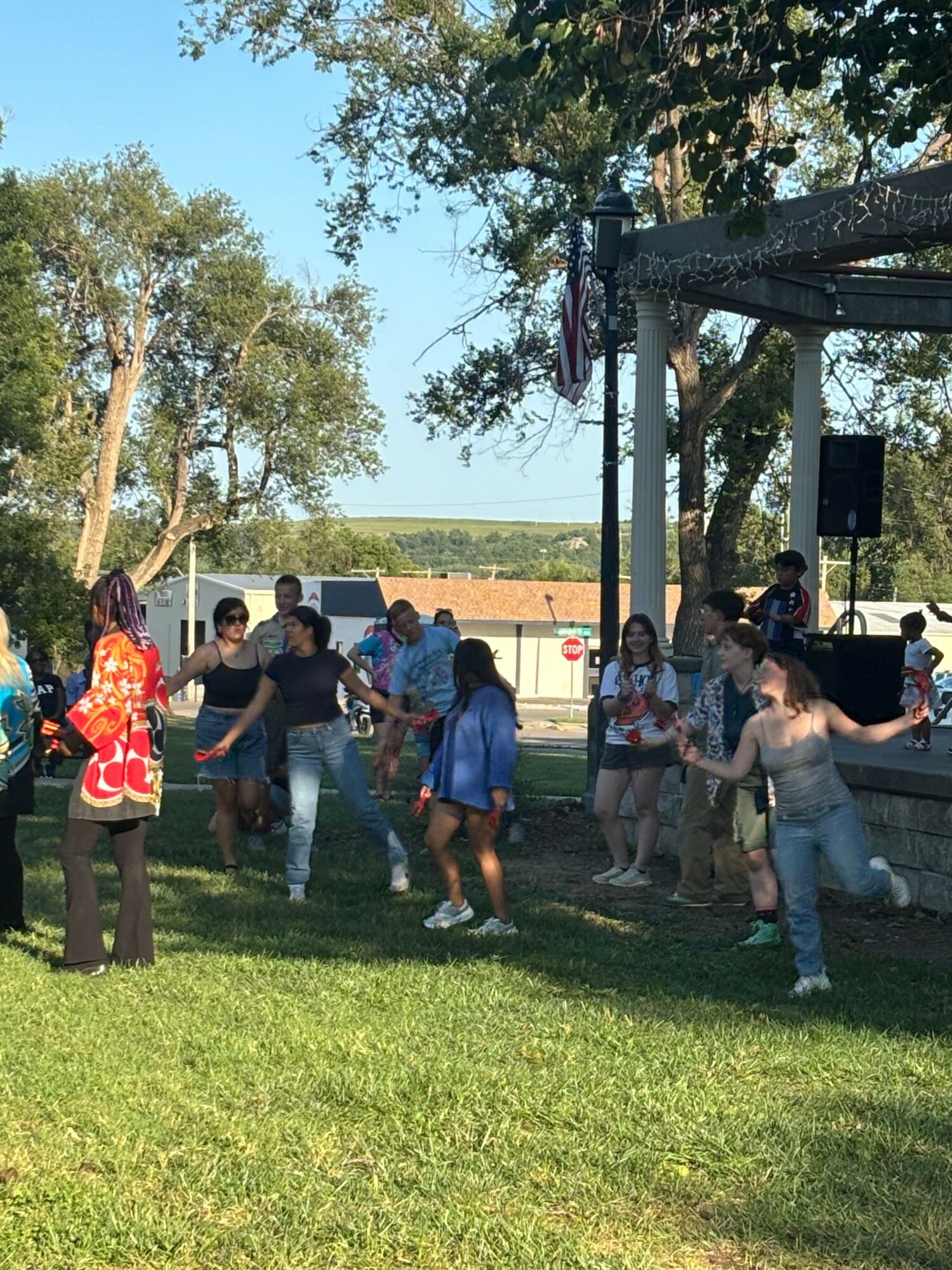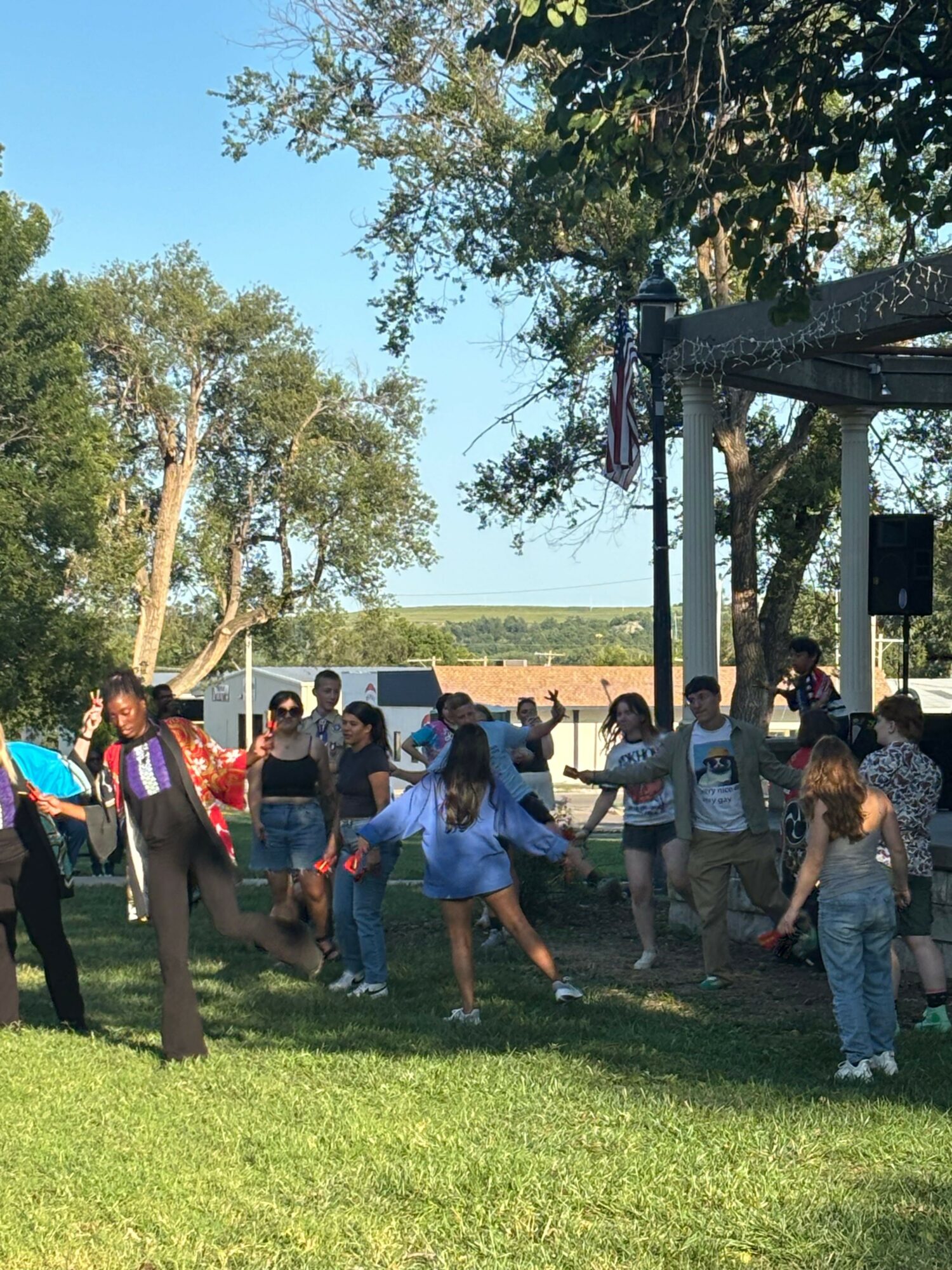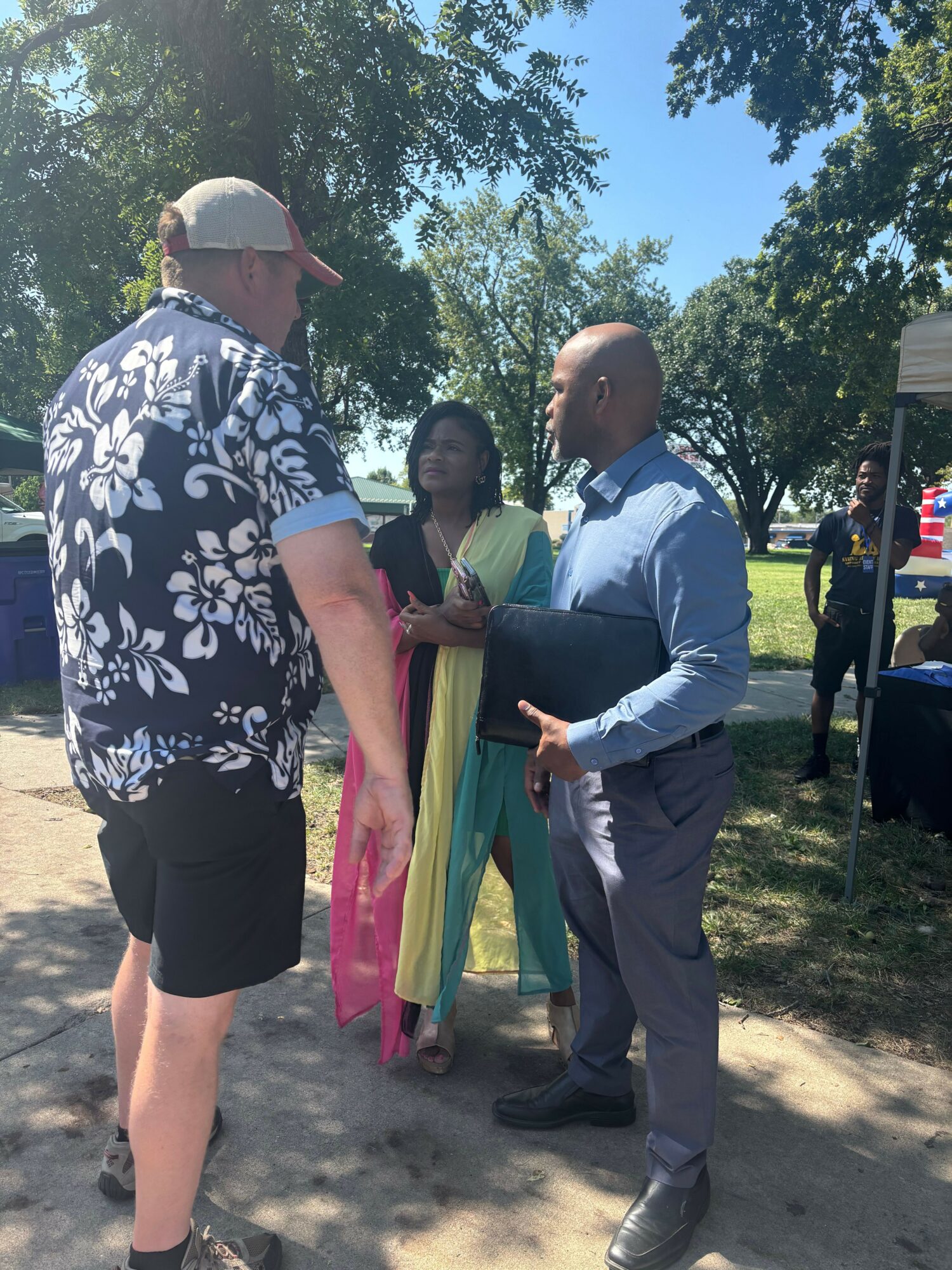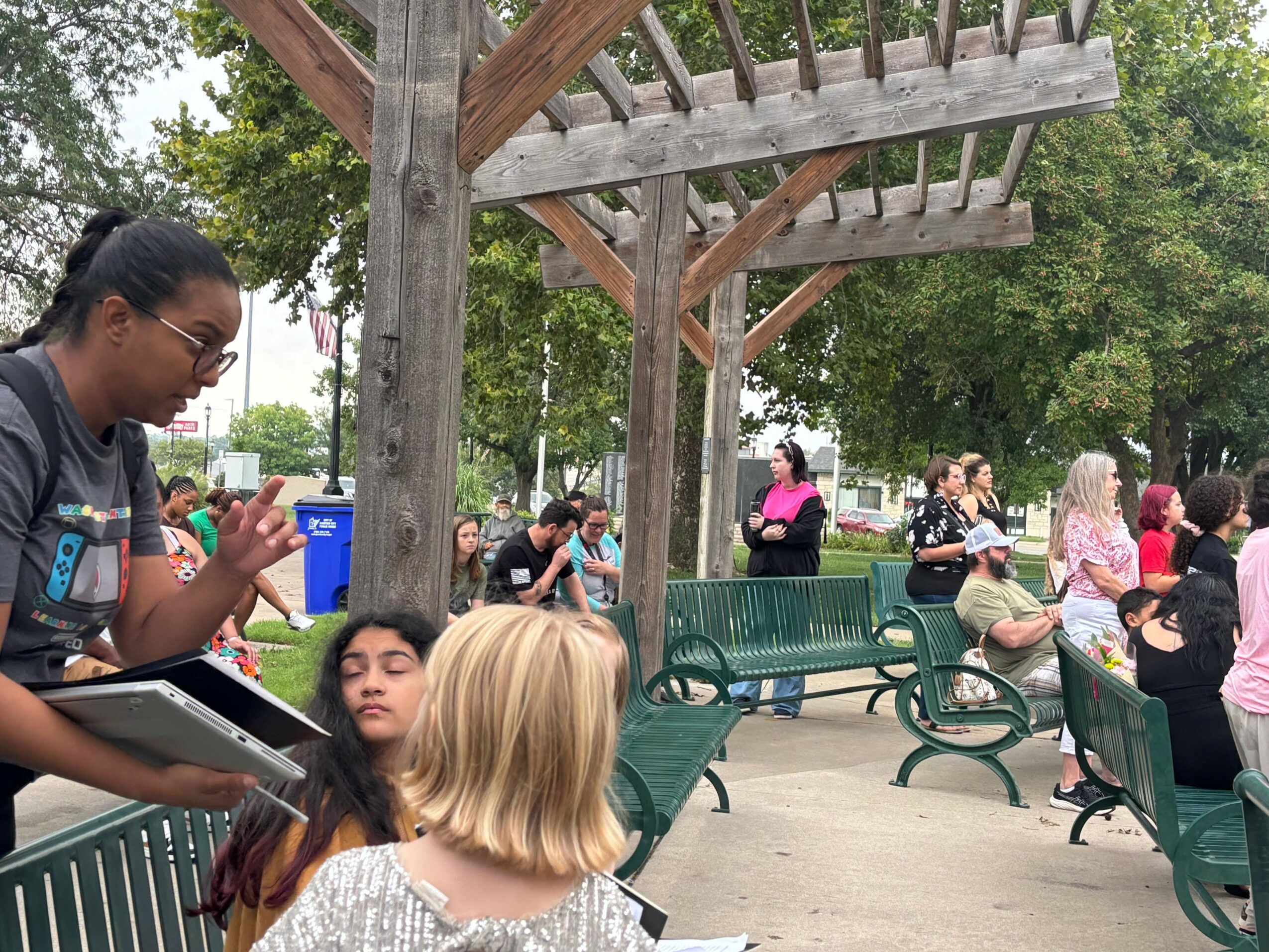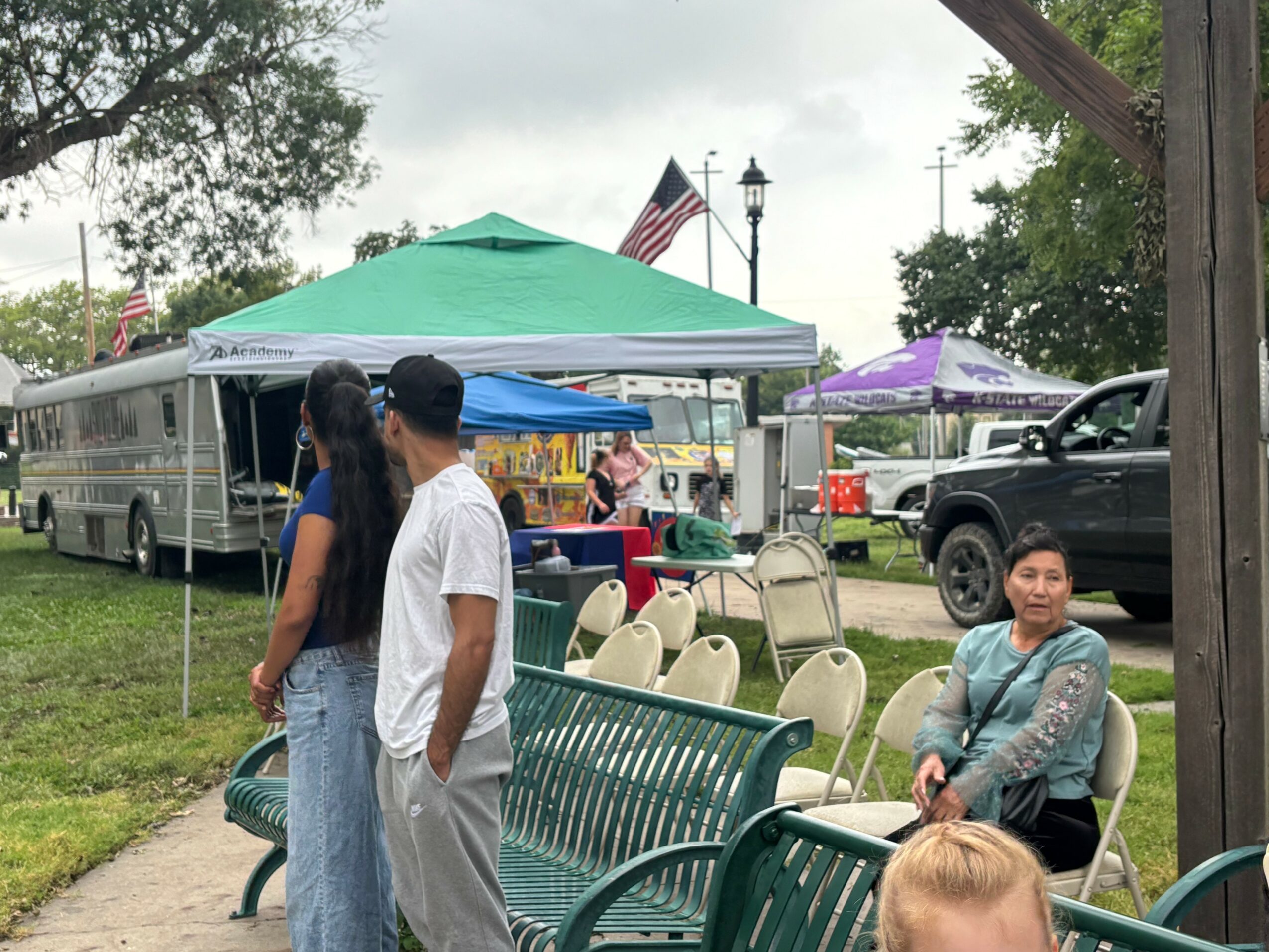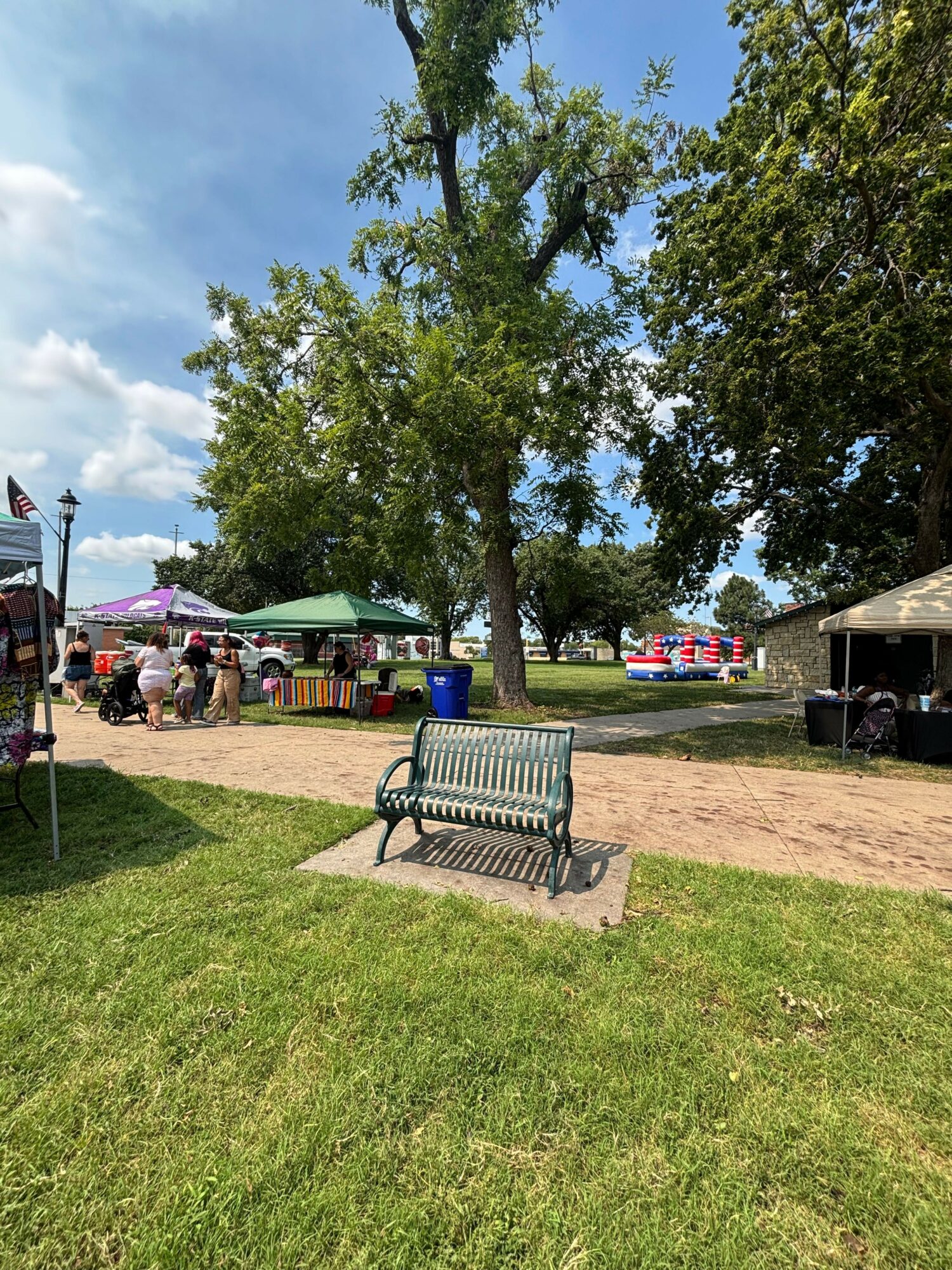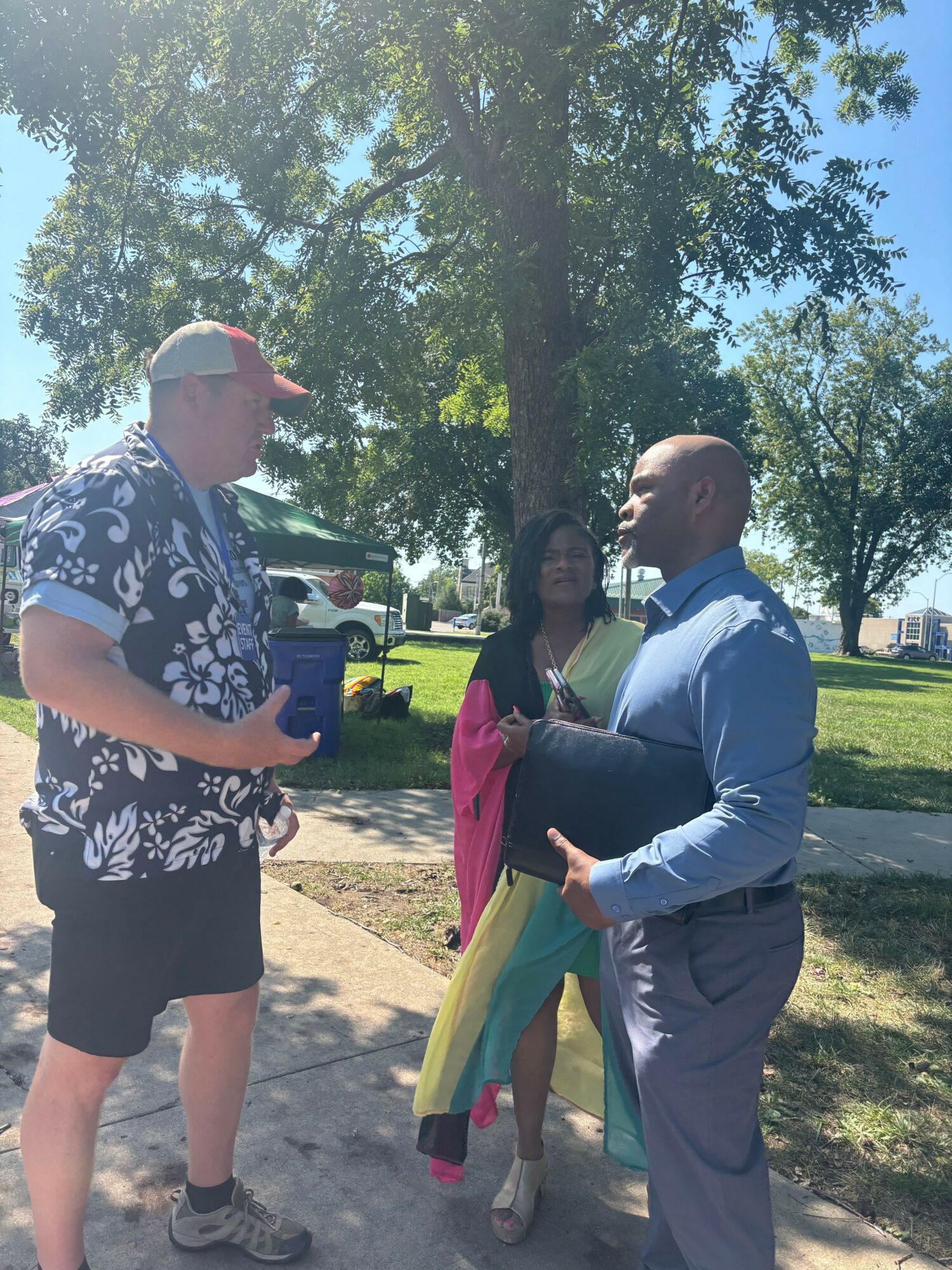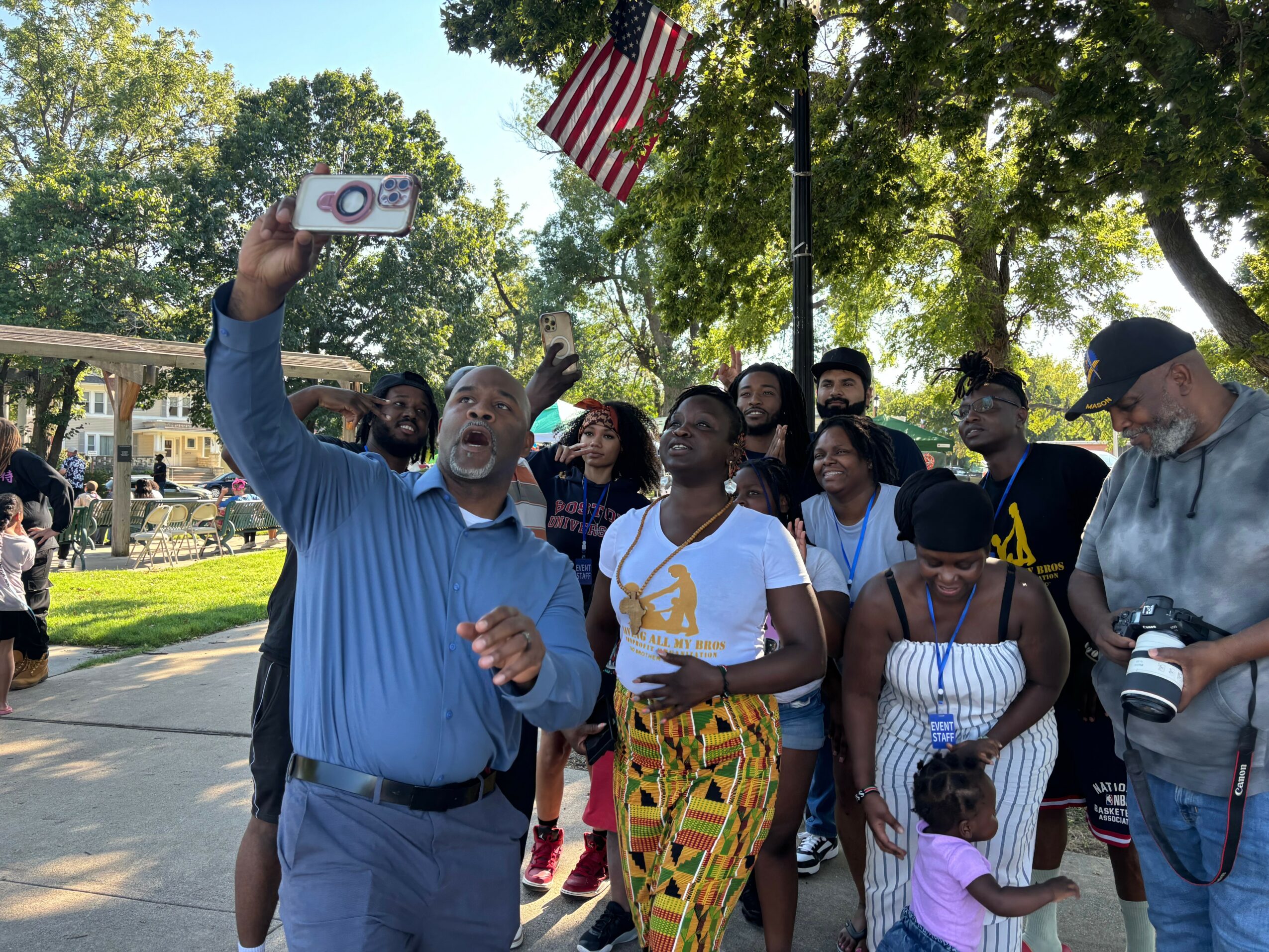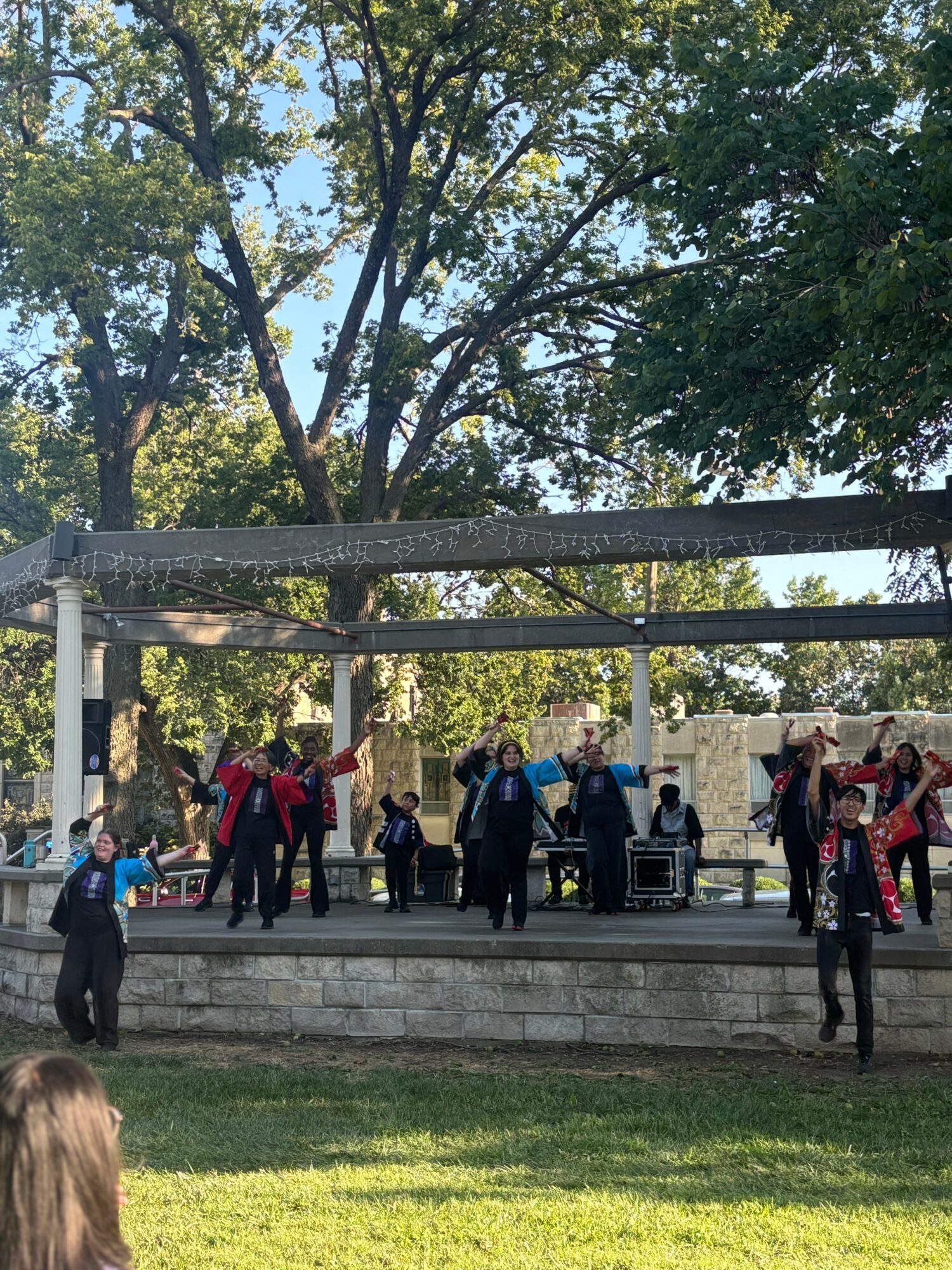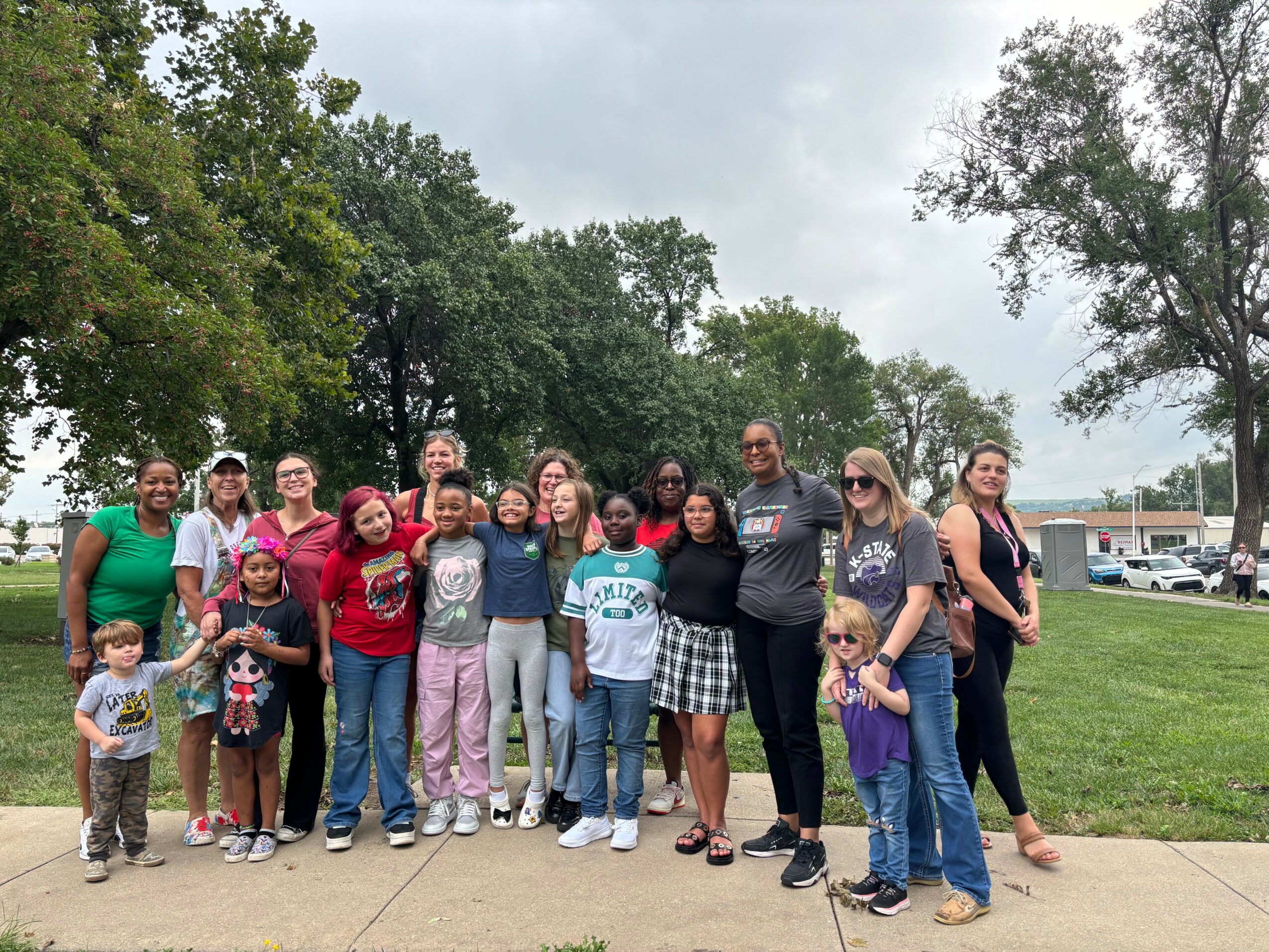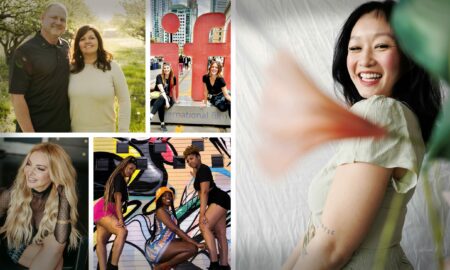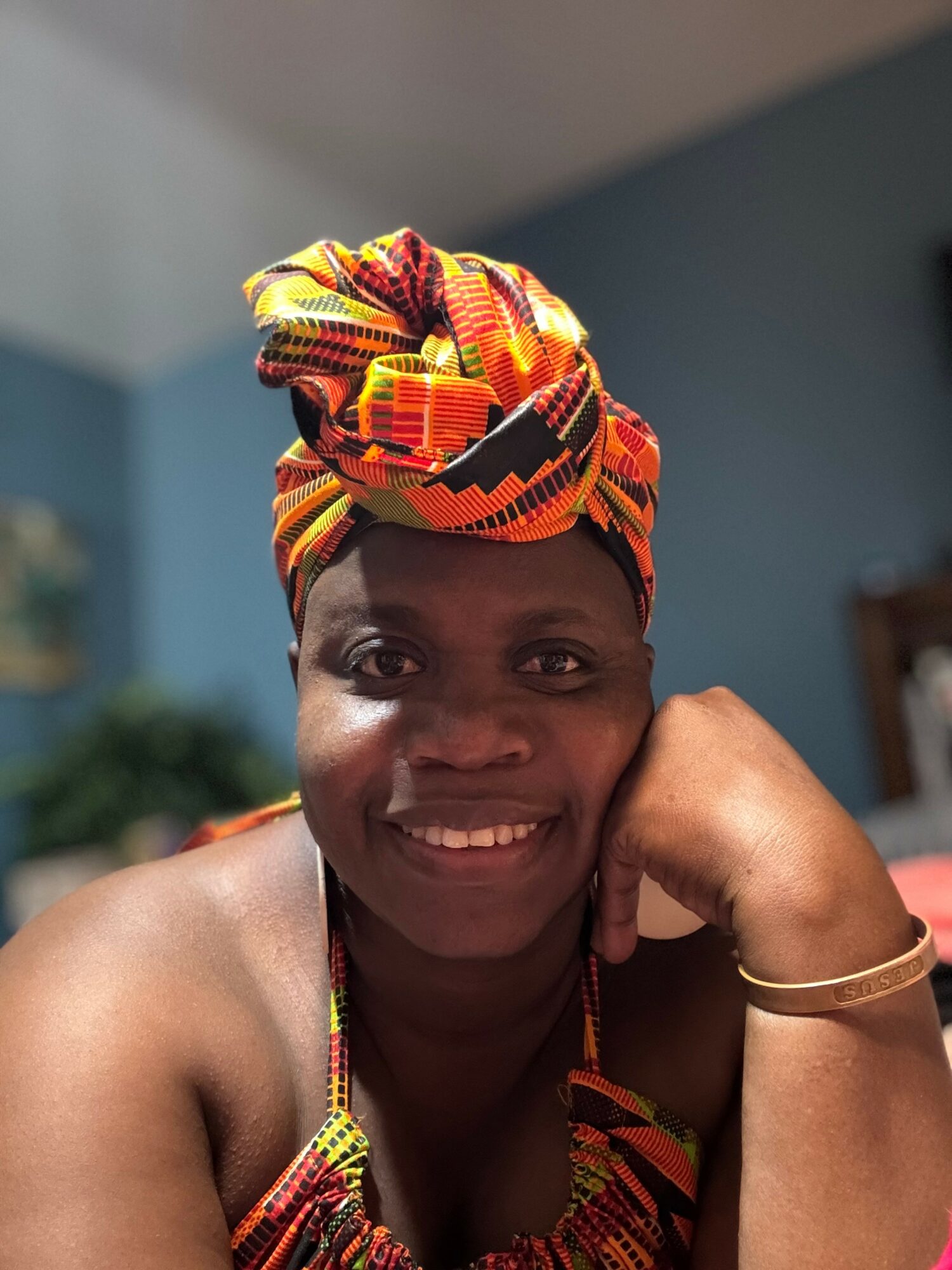

Today we’d like to introduce you to Martine Chery-Hilaire.
Hi Martine, we’re thrilled to have a chance to learn your story today. So, before we get into specifics, maybe you can briefly walk us through how you got to where you are today?
I don’t know how to make a long story, so l’ll be giving you a lot of details. 😂
My journey to the U.S. began with a long-awaited reunion. My mother, Marie Odige, left Haiti when I was 10 months old to seek a better life, and I grew up with my father and neighbors in Gros-Marin, Haiti. After nearly 18 years apart and a three-year immigration process, I finally joined her in Washington, D.C. on April 15th, 2003, just before I turned 21.
The transition was much harder than I expected. Back home, I was a popular girl with many friends, a kindergarten teacher, and a law school freshman. In D.C., I felt like a nobody, isolated in a place where making friends was very difficult. Of all the changes, the hardest pill to swallow was the loss of social status and the ability to effectively communicate with those who don’t speak Haitian-Creole. I deeply grieved losing my identity as a kindergarten teacher and law student. I couldn’t continue teaching or studying law because of language barriers, and because I did not meet the degree requirements, I couldn’t pursue either profession. Instead, I had to take ESL( English as a second language) classes and eventually pursued a diploma in cosmetology at Heritage Institute. I later pursued a bachelor’s in criminal justice at Westwood College.
Cultural differences added to my struggles. For example, back in Haiti, when I’m explaining something I get really passionate. Unfortunately in the U.S., my passion was often misconstrued as aggression. In my Gros-Marin, it was the norm to greet everyone in the community. However, in the U.S. my friendliness was often viewed as having bad intentions.
Like many Haitians in the diaspora, I felt morally obligated to financially support my family and friends back home. To meet that obligation, I worked multiple fast-food, retail, and healthcare jobs. It was frustrating because many non-Haitians couldn’t understand why I worked so hard without having children of my own. When I got pregnant in 2006, I experienced extreme financial hardships because I couldn’t continue working towards the end of my pregnancy. Then when my daughter Hope was born, every financial decision was dictated by her needs and the family members I committed to helping in Haiti, making it incredibly hard to make ends meet even working two jobs. To earn extra income, I sold pate kòde at my mom’s church and briefly operated Chez Matou, a small dine-in restaurant from my apartment in Hyattsville, MD.
After carefully evaluating my life, I decided to go to college because I didn’t see how I was going to offer my daughter a bright future without a degree. In order to attend school full-time as a single mom, I worked part-time as a home health aide during the day, went to school full-time at Westwood College in the evening, and worked full-time overnight as a CNA at Sunrise Assisted Living. I would often go two or three days without seeing my daughter. One night, as I was watching TV after completing my work, a new supervisor accused me of sleeping on the job and I was fired from Sunrise. I was heartbroken, but I chose to stand on God’s promises from Jeremiah 29:11.
On my way home, I saw an ad for a Navy recruiter while reading the Express newspaper. With tears in my eyes I reached out to him, and he called me in for the ASVAB test. Due to a low score, he referred me to an Army recruiter. In my desperation to support myself, my daughter, and my family in Haiti, I joined the Army and was enlisted despite my low ASVAB score. I told no one and made arrangements in secret so that someone could take care of my daughter while I was gone. When I was ready to ship to basic training, I finally told everyone I’d joined the Army and would be away for 6 months and possibly longer. Upon completing training, I received orders to Fort Riley, KS. I moved to Junction City at the end of May 2009, and fell in love with the town because of the vibrant community celebration of Sundown Salute (now Freedom Fest).
On January 12, 2010, a catastrophic 7.0 magnitude earthquake struck Port-Au-Prince, Haiti and claimed the lives of many of my closest childhood friends and some family members. Shortly after, I went on a 12-month tour in Iraq. During deployment, I faced significant challenges, including unfair treatment, racism, and harmful stereotypes about Haiti, such as being automatically associated with practicing Vodou. The mistreatment from my leadership, the stress of mortar attacks, combined with the grief from losing my childhood friends in the earthquake, all contributed to a sudden decline in my mental health.
Upon completion of my deployment, I returned home a different soldier. I was easily startled, hypersensitive, and overly irritable. My condition was so severe, I was hospitalized twice for mental health crises in 2011—first at the VA psych ward in Topeka and then at Walter Reed in Washington, DC while visiting my family for Christmas. Following my second hospital stay, the Army medically retired me. I’ve struggled with mental health issues and a feeling of displacement ever since I left the Army. In addition, my disability makes traditional work difficult without caring leadership, genuine accommodations, inclusion, and appreciation.My friend Patricia allowed me to braid in her salon to substitute my income.
While transitioning out of the Army, I enrolled at Kansas State University as a transfer student in 2012, only to find none of my credits from Westwood College were accepted. Unsure of my career path, I didn’t declare a major at first. My first semester included introduction to social work.Since I was interacting with social workers and case managers during my transition out of the military, at the end of the semester I developed a passion for social work and was inspired to pursue a career in the helping field .
My disability made pursuing my education a challenge; I often lacked the motivation to attend class or stay proactive with assignments. However, my advisor Dr. Gibbons urged me to continue, even if it meant taking one class at a time. One day, I went to him and shared how lonely and depressed I was because I only had one friend in Junction City, and there were no Haitians I could connect with. He told me: “If there’s no Haitian community in Junction City, why don’t you start one?” That was the moment everything changed. I was on a mission to not only preserve and share my Haitian heritage, but also to start a Haitian community in Junction City.
Since I had no interactions with other Haitians, my only lasting connection to my heritage was through cooking Haitian food and hosting free Sunday dinners to share my cuisine with church friends. They often complimented my cooking and encouraged me to open a restaurant. Since I had already started Chez Matou out of my apartment back in Maryland, I followed their encouragement and started selling plates to other community members. I hosted a lot of community dinners to assist underprivileged children in Gros-Marin with tuition assistance and school supplies. I found solace in offering educational opportunities to those who otherwise would not have access to quality education. I continued attending college full-time entrepreneurship while serving as a help minister at New Church of The Living God. My ministry involved assisting those who came from the hospital with activities of daily living, providing childcare services and hair braiding to single mothers, offering companionship and transportation assistance to elderly and disabled members of the church.
In 2012, I reconnected with Kersaint Hilaire, a former classmate I had lost touch with for over 12 years. We started dating just a few months later, and I confided in him about my dream of opening a Haitian restaurant. I went back home to get married in 2014, but unfortunately I had to leave my husband behind because his admission to the U.S. required a two-year immigration process. Finally his green card was approved and he joined me in Junction City. Like any other immigrant, he too faced many challenges with his integration, including having to accept low-pay jobs despite having a bachelor’s in sociocultural anthropology.
About a year later our son Kevin was born. I tried obtaining traditional employment once more; when that didn’t work, I went back to selling plates out of my home kitchen. In addition to all the other challenges, like most immigrants I was undereducated in U.S. financial system. I made some costly mistakes and faced many financial hurdles when I tried to obtain traditional financing to open a brick-and-mortar restaurant. Finally, my husband and I bootstrapped a catering company and hosted pop-up restaurant events at the Fraternal Order of Eagles until I had to stop due to another pregnancy.
Unfortunately, we experienced a major personal tragedy on January 10th, 2020, with the stillbirth of our daughter, Harmony. To channel my grief and refine my culinary skills, I enrolled at Escoffier School of Culinary Arts. In December 2020, we purchased a food truck and launched The Green Machine, serving authentic Haitian street food to Junction City and surrounding communities. We pitch our business and won first place at the Startup MHK pitch competition in 2021. We used the prize money to purchase a vacant lot downtown to park the truck.
I graduated culinary school and completed my internship at Walt Disney World, which further inspired our vision to expand our business. After assessing the most pressing needs of the community, my husband and I wanted to repurpose our lot to build multipurpose cultural center to connect with other Haitians and showcase our heritage. Inspired by a seminar on collective investment and a saving strategy known as “sòl” in Haiti, we founded the First Thousand Members Club to connect visionaries who want to collaborate on projects that meet the needs of the community.
At first we wanted our cultural to be a supportive environment exclusively for Haitians integrating in Junction City and a place where we would showcase Haitian culture to the broader community through food, arts and cultural activities. Then we realized our integration struggles were not unique to Haitians or the immigrant population. Most newcomers face the same challenges: lack of belonging, loss of status, disconnection to one’s cultural heritage, limited access to useful information, and various stereotypes when they move to a new community.
We evolved and expanded our reach to include not only all immigrants, but also military families and transitioning service members integrating in the Junction City community. We used our own personal funds to keep the organization going, focusing our first-year efforts on supporting children in Gros-Marin and hosting cultural nights that showcase diverse cuisines and music.In August of last year, we pioneered Junction City’s first-ever multicultural festival. We called it Harmony Fest to capture our mission to unite the community. Unintentionally and unexpectedly, Harmony Fest echoed our daughter’s name.
Despite numerous last-minute challenges, including a personal miscarriage a month before the event, our first festival drew 865 attendees and showcased 15 countries, successfully demonstrating that diversity is an asset, not a threat. This past November, we stumbled upon and leased an underutilized space with a commercial kitchen, allowing us to pilot our multicultural center concept. After extensive renovations, we officially opened The Harmony Center on April 15th this year. Although the community has not quite realized The Harmony Center’s value yet, it stands as a hub for community gatherings, business incubation, culturally-relevant education, and family-friendly recreation.
Despite ongoing challenges with sponsorships, vendor commitments, and another hospitalization due to a mental breakdown near the anniversary of my miscarriage, I remained committed to hosting our second annual festival. This year Harmony Fest expanded to include countries that were not represented last year, and we drew international attention through our keynote speaker Edmond W. Davis, a world-renowned social historian, NBC actor, and Amazon bestselling author.
While our festival primarily focuses on promoting cross-cultural interactions and showcasing the cultural diversity that positions Junction City as the multicultural center of middle America, The Harmony Center is working to focus on practical, life-changing services such as language workshops, case management, integration assistance, interpreting, and transportation assistance. Most importantly, at The Harmony Harmony Center, our BMLOV (Business Mentorship and Low Overhead Venture) program provides existing and aspiring entrepreneurs a place to operate or test their concept, without the burden of high overhead.
We are still working to establish The Harmony Table, a community meal and empowerment program seeking to serve 75 daily meals and case management services to help alleviate hunger in Geary County(one of the highest-rated counties in Kansas for food insecurity). Though we have not yet launched The Harmony Table, we are currently serving 24 free meals per week and are actively offering our integration assistance services to many incoming military families and immigrant individuals seeking to settle in Junction City.
I know this is a long story, but I wanted to share my life’s journey as a testament to resilience. I believe God allowed me to experience my adversities so that I could turn each one into an opportunity to make a difference and find purpose through helping others. Through Harmony Fest, The Harmony Center, and The Harmony Table, our vision is to build bridges between locals and immigrants, military and civilians, local governments and various socioeconomic groups. We are creating essential opportunities for those often marginalized and blazing the trail for a generation of immigrants who can integrate into U.S. communities without losing their cultural identity. We are diligently building a community where people rely on each other and their local resources first. We envision a Junction City where everyone takes pride in their community and thrives regardless of their ethnic background.
Would you say it’s been a smooth road, and if not what are some of the biggest challenges you’ve faced along the way?
No part of my journey has been a smooth ride. Even after 22 years in the U.S., I still struggle with being misunderstood and mislabeled. My ongoing battles with depression, PTSD, anxiety, and hypothyroidism make most days an uphill battle. Now in my early forties, it’s sometimes difficult to determine whether certain behaviors stem from hormonal changes or my mental health conditions.
Because of my military experiences, I’m hypersensitive to unfair treatment. As a soldier, I was treated as a doormat by higher-ranking coworkers and leaders. The one time I stood up for myself, a warrant officer claimed I disrespected him simply because I told him “you can’t tell me what I know” after he insisted “I know you know who got your roommate pregnant.” He unfairly recommended me for an Article 15. As a result I lost 2 ranks and over $600 per month in pay reduction for a year. Since becoming a civilian, I no longer bite my tongue when I feel bullied or threatened. However ,my self-advocacy is often misconstrued as aggression. I’m still trying to find a healthy balance between self-advocacy and courtesy because oftentimes some people take me for granted when I’m overly courteous, while others claim that I’m rude for defending myself. I’m also learning to show empathy without trying to carry everyone’s burden.
Because my husband and I have sustained First Thousand Members Club with our personal funds for almost three years, people assume we received large grants. This has led those who have the means to withhold support. Because I’ve approached the city on many occasions requesting funding, some say I’m always asking for money and call me greedy. First I requested funding for Harmony Fest, then for matching funds to pursue a grant, and when I requested $100K to establish The Harmony Table, I became the topic of conversation for many Junction City residents who claim I am too ambitious.
Despite my consistent message about unity in the community, some claim that I’m always talking about racism. Many of my Facebook posts offfer contents on the importance of having a sense of belonging on community integration, civic engagement, collaboration between diverse groups, bringing the community together through cross-cultural interaction and heritage preservation. Because I promote The Harmony Center, I’ve been labeled condescending, pushy, and arrogant.Someone even asked me to stay in the shadows and let others lead the organization.
There’s significant gatekeeping, with people assuming we’re trying to replace their programs or steal their spotlight. As a result I find myself always saying : “we’re here to complement your work, not compete with your organization.” Some critics bash my businesses without ever patronizing either one, then they get upset when I defend myself. When I advocate for my work or address unfair reviews, my post is dismissed as “ she’s always playing victim.”
Despite every obstacle, every misunderstanding, and every door slammed in my face, I wake up each day choosing to serve and build bridges instead of walls. Community service has become essential to both my integration and my healing journey. It’s helped me find my place in Junction City while giving my pain purpose. Every free meal we serve, every entrepreneur we inspire , every cultural barrier we break down not only proves that our diversity is our greatest asset, but also transforms my struggles into meaningful impact.
I must admit, I couldn’t materialize The Harmony Center without God’s anointing, and continued support from my husband Kersaint Hilaire , my two children Hope and Kevin, my friends Miss Patricia Okemba, Retired LTC Nate Brookshire,Mr. Sylvester Jackson, and Mr. Shed Mayberry. I am ever grateful for each and every one of our clients,vendors and patrons who make our programs and events worthwhile. Through our collective efforts, The Harmony Center is becoming a testament to what’s possible when a person refuses to let adversity have the final say. My advice to anyone who feels unseen, misunderstood, or counted out: Don’t let your hurt harden your heart. Your story isn’t over and it’s worth sharing because you never know who will be inspired by a simple message you share. Rest assured that everything happens for a reason. Your pain has purpose, your struggles have strength, and your voice has value. Sometimes the very thing that makes you different is exactly what the world needs. Don’t blend in, stand out. Stand up for yourself, for what is right and what you believe in. Show up where it matters. Speak up against injustice. Keep building, keep serving, keep believing in God’s plan to prosper you. The community that needs you most might not recognize it at first, but transformation and Harmony don’t require permission, just a willing vessel.
Appreciate you sharing that. What else should we know about what you do?
What I Do:
As a multifaceted social scientist, I build communities to foster a sense of belonging and civic engagement for immigrants, military families, transitioning service members, and veterans. I focus on bridging the divide between diverse groups, such as locals and immigrants, military personnel and civilians, and between community leaders and constituents from various economic backgrounds. Furthermore, I offer essential case management services to assist and advocate for marginalized groups, using my personal experiences to effectively connect them with the resources needed to thrive in their community.
What do you specialize in:
As a social entrepreneur, I specialize in nonprofit management, community integration, program development and culinary arts.
My work focuses on three key areas:
1. Cultural and culinary experiences: I host cultural celebrations and offer exotic culinary experiences that introduce the community to diverse world cuisines.
2. Holistic Community Solutions: I develop programs that use a holistic approach to address practical community needs, including food insecurity, homelessness, and lack of access to useful resources.
3. Skills Building and Awareness: I provide specialized training in cultural awareness, culinary skills, and foreign language exposure to foster understanding and personal development.
My Key Achievements and Ventures:
In 2022, I co-founded and launched the First Thousand Members Club with my husband. Together we pioneered Harmony Fest, Junction City’s first-ever multicultural festival, which showcased 15 countries and drew 865 attendees in its inaugural year. This success inspired us to the establish The Harmony Center: a community hub where Junction City residents can showcase their culture and creativity year around.
I developed our Business Mentorship and Low Overhead Venture (BMLOV) program to promote economic empowerment in Junction City. This program allows existing and aspiring entrepreneurs to operate their business at The Harmony Center, helping them avoid the high costs and risks of traditional brick-and-mortar operations.
Additionally, as the first Haitian to showcase authentic Haitian cuisine via my food truck, The Green Machine, I use my business to provide free meals to homeless and low-income individuals in the community.
What Sets Me Apart
My paradigm is multidimensional.That sets me apart and make my work deeply relatable. I combine military discipline, entrepreneurship, and nonprofit leadership with social science expertise to provide holistic support for the underserved. I have a profound understanding of discrimination, lack of inclusion, and the challenges of rebuilding from scratch due to personal experiences as an immigrant a single mother, a soldier and a disabled veteran. In other words, my personal adversities fueled my passion for building communities, and my leadership is driven by compassion, genuine care, people-first and a solution-oriented approach. I am deeply engaged in improving the quality of life in Junction City. Although I don’t fit in anywhere, I show up everywhere, often challenging the status quo and speaking up against inequality and discriminatory practices.
What I am most proud of:
I am most proud of my Haitian heritage and my ability to transform my personal struggles with depression and PTSD into opportunities to serve others. I do not just talk the talk; I walk the walk, ensuring that criticism and rejection never deter me from pursuing ambitious dreams and inspiring others to pursue their passion.
Let’s talk about our city – what do you love? What do you not love?
What I Love About Junction City:
I appreciate the small-town, slow-paced vibe and the military friendliness that comes with Fort Riley being here. The lower crime rate and cost of living make it an ideal place to raise a family or retire. There’s also a sense of community that you don’t find in bigger cities like Washington,DC. I love that most people care about their neighbors. They don’t sit around and wait for the government to take initiative. Instead theyinancial illiteracy, combat food insecurity, create economic opportunities and civic responsibility elderly lack of access to quality education and adequate healthcare.
Where I See Opportunities for Growth:
However, since I’ve moved here in 2009, I’ve noticed some challenges that limit our potential. I’ve seen a decline in economic development. The population has remained stagnant, and there’s often resistance to new ideas and change. A lot of the population is reluctant to try any food that’s not steak or burger. Leadership sometimes operates like an old boys’ club, and priorities don’t always align with what the community truly needs. A lot of minority businesses have come and gone.because there’s such a disparity in traditional funding opportunities for BIPOC entrepreneurs .
We desperately need more holistic youth engagement programs beyond just sports and outdoor recreation like fishing and camping. We need music programs and a dedicated youth center.With adequate funding ,collaboration from community organizations and local leaders, we can even transform a part of The Harmony center into a teen hub that includes a recording studio for local youth to channel their energy and pursue their passion for music. I say this because a lot of the youth I’ve interacted with have a passion for music and have voiced their desire for a recording studio. A lot of them are using their phone to make beats and recording their songs, and there’s are a lot of hidden talents waiting to be discovered . With just a little bit of intentionality and a holistic approach to youth empowerment, these kids can put Junction on the global stage.. That youth center would also house cultural clubs, offer foreign language learning opportunities and culinary education to expand their horizons in world cuisines as we are raising a generation of global citizens, not just junction city residents. I also don’t like how our nightlife shuts down so early, and how we don’t have diverse food options beyond the limited ethnic restaurants that often don’t serve authentic versions of their cuisine.
The Collaboration Gap:
Despite our community having numerous churches and nonprofits, insufficient collaboration exists to effectively address community needs. The three levels of local government are often divided and can’t seem to work effectively together to solve local problems. You have the city fighting with the county, or the county fighting with the school district In addition, the disparity in county funding is particularly concerning, compounded by the lack of a transparent process for organizations to understand how and when to apply for support.
The county provides vastly different support to similar organizations. For example, here’s next year’s allocation
• Freedom Fest: $55,000
• JC Mainstreet: $35,000
• Juneteenth: $10,000
When we initially requested $5,000 for performing artists and bands for this year’s Harmony Fest, we were told the county would only fund one bouncy house for $300.
We subsequently proposed a collaboration to bring a world-class historian, author, and motivational speaker as our keynote guest. Our $3,500 request to the CVB for the honorarium was denied, despite the fact that First Thousand Members highlights the diversity that makes our community unique and brings out-of-town visitors during Harmony Fest.
There is a lack of transparency and accountability and the funding process lacks clarity and consistency. When I tried escalating our request directly from the CVB to the county, one commissioner publicly stated they had directed me to work with the finance director to submit a funding request. However, this was not accurate. Another commissioner who responded to my email inquiring about the process for requesting funding for The Harmony Table( a community meal program we are seeking to establish) he simply told me that the budget was already set, even for next year. and that he’d be happy to let me present to the commission. When I asked when he never responded.
When confronted they said they have already agreed to support Harmony Fest with $300 (one bouncy house only)
This disparity and gatekeeping raises serious questions about:
• Funding priorities and criteria
• Fairness in the allocation process
• Transparency in decision-making
• Support for events that promote community diversity and economic development.
The current system appears to favor established events while limiting opportunities for organizations working to showcase our community’s unique character and attract visitors.
My vision:
Through Harmony Fest, I see Junction City’s potential to be a model multicultural community that celebrates diversity and embrace new ideas while maintaining its small-town charm. It can be a place where immigrants can integrate into their U.S community without losing their cultural identity or having to compromise their core values. Junction City can even be the United Nations of the Midwest and the multicultural center of Middle America. To achieve this status, we need leadership that supports local businesses, invests in inclusive programming, and recognizes that our diversity is an asset that can drive economic and cultural growth.
Pricing:
- BMLOV starting at $350/month depending on assigned space
- Food service and community events starting at $10 on average
- Translation/ interpreting services and venue rental starting and case at $30/hr
- Couple’s cooking and language workshop starting at $25 per session depending on class size
- Case management services starting at $1000 for up to 10 cases
Contact Info:
- Website: https://www.firstthousandmember.org
- Instagram: https://www.instagram.com/firstthousandmembersclub?igsh=MTJmMnBrOHRwbzIwYw%3D%3D&utm_source=qr
- Facebook: https://www.facebook.com/share/1PahQrMBuS/?mibextid=wwXIfr
- Youtube: https://youtube.com/@ftmcdbatheharmonycenter?si=ZmKsl7bieqyKCIFo
- Other: https://www.facebook.com/share/g/1FHZseX15h/?mibextid=wwXIfr
